BYU-Idaho’s class of Winter 2025 is ready for the future!
Read from our featured graduates for this semester, nominated by each college, as they look toward their futures.
College of Agriculture and Life Sciences
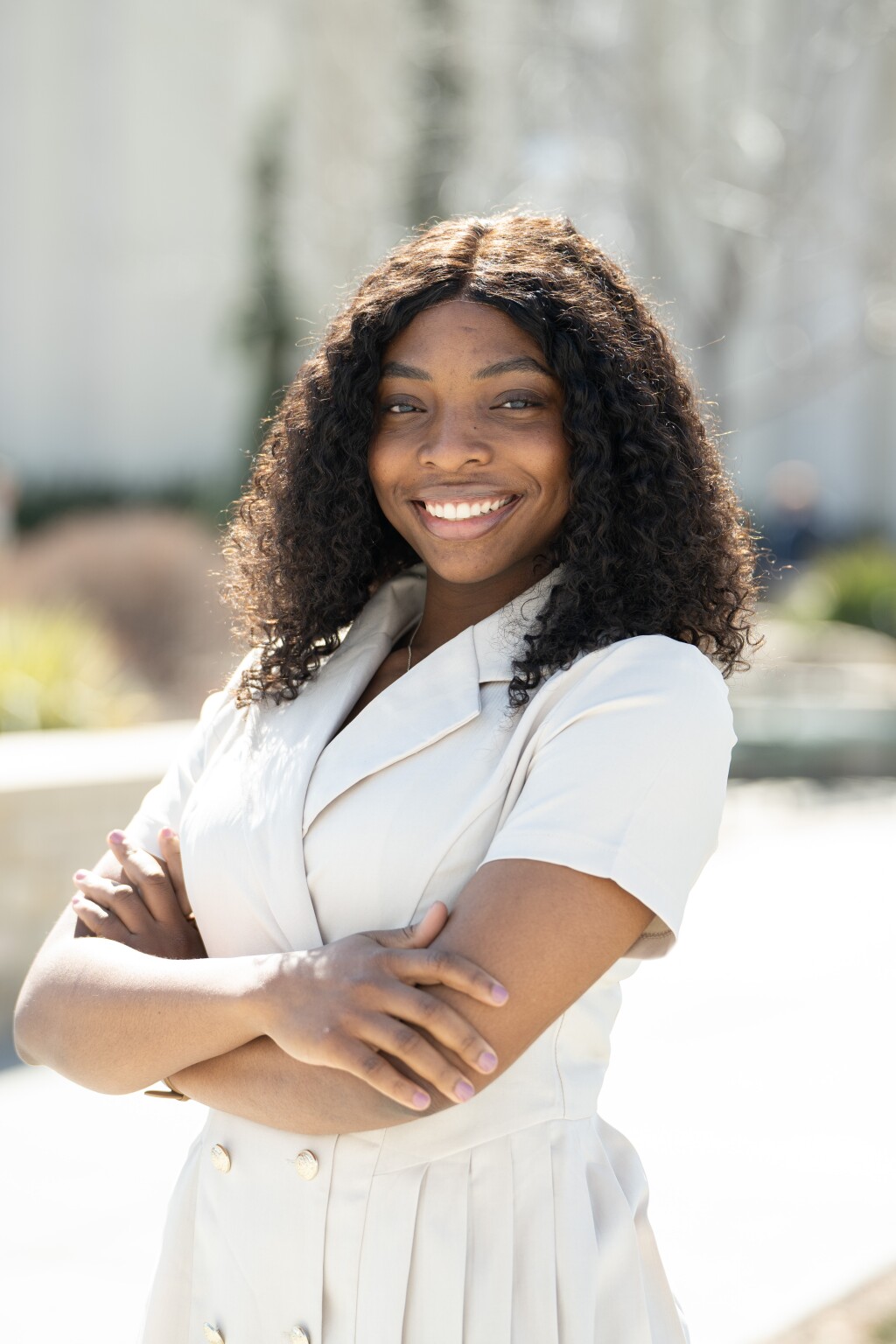
Sybil Nwangele
Nursing Major
As you reflect on your experience, what stands out the most from your education?
What stands out the most to me is the campus and the opportunity to come here and share experiences with people who have the same values. People here are so willing to be helpful and are trying their best to be disciples of Jesus Christ.
My very first semester here, I had no one. I came here alone and was trying to figure out my way toward my classes. It was all new, and I would get lost, but people would go out of their way to stop whatever they were doing and take me to a class. That was my very first experience.
I came two weeks late into the semester. From home, I contacted my professors, and they were all willing to work with me. I had to play catch up, and they were very patient. The fact that professors want the best for you is awesome. In smaller class sizes, they know you and are always there to give you positive affirmations.
What are some moments that helped you grow your faith?
The first time I attended Spirit Week was in Fall 2024. I've been here for four years, but it was the first time I went. It was all about fun, but I did feel the Spirit that was meant to be felt. That was my first time being in a situation where that energy surrounded me; we were all chanting and dancing.
President Meredith shared a story of the founders and how BYU-Idaho came to be what it is, the sacrifices and everything put into it, and all I could feel was gratitude. I could feel I was in the right place; I was where I was supposed to be.
I felt that this place was built out of God's inspiration, and my being here is because He needs me to acquire those skills that would enable me to go out there and share that light I've received.
And you can't forget devotionals. I won't say I attended all of them, but when I did attend, it set me right. Sometimes, I got answers to questions I had. Attending devotional gives you the motivation or tips to keep going forward.
Looking to the future, what are you the most excited about?
I’m most excited to share what I've learned from here with the world. President Henry B. Eyring said that BYU-Idaho graduates will be “life-long teachers in their families, in the Church, and in their work.” We have a disciple goal to be leaders wherever we find ourselves in our communities and families, and I feel like BYU-Idaho has prepared me not just to be a leader but also to be a good follower of Jesus Christ.
What advice do you have for succeeding in the nursing capstone?
Be willing to learn. Go in with enthusiasm, and don't go in with the mindset that you should know everything. In my own experience, I figured out, “Oh my gosh, there's a lot more to learn. I can't be independent right now.” Then, I had to sit back and learn.
My parents and teachers advised me that this is an opportunity for you to gain those experiences and know what you don't know. So go in with the mentality that you’re there to learn, be available, and always say yes to opportunities.
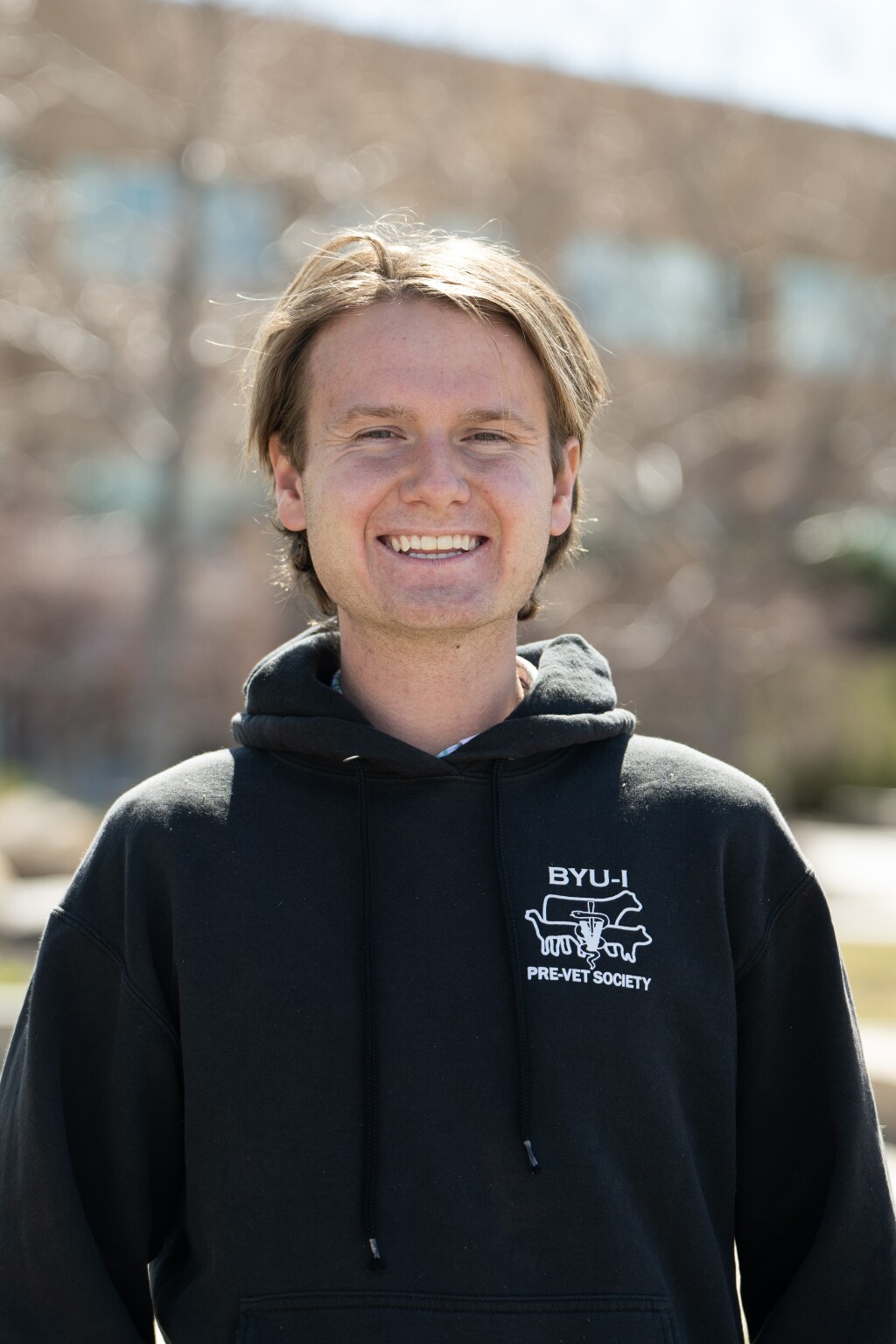
Dallon Laird
Animal Science Major
As you reflect on your experience, what stands out the most from your education?
The thing that stands out the most to me is the teachers. It starts with the fact that they are qualified in what they're teaching—all of my teachers had experience in the field they were teaching—but then there’s the spiritual basis at BYU-Idaho.
Teachers want you to succeed, and they care about your success as a student and person. I've been impressed by how willing they are to go out of their way to help you.
When they talk about the Spirit of BYU-Idaho, it's definitely a thing. When you come here, it feels different than other universities. The teachers care about you; the Merediths care about you. If you're here, God has brought you here for a reason.
Looking to the future, what are you the most excited about?
I’m excited to be able to apply things that I’ve learned here. You learn the basics here, but then you go out into your career and learn about the details there. I’m excited to apply the basics that I learned here.
What is the most significant skill you’ve learned through your education?
The biggest skill I've learned is discipline. It can be hard sometimes when you're balancing a lot of things, especially as a student. Here, it’s more than likely you have a church calling, and then you also are going to school, and then you also have other things going on. I've had semesters where I've been taking 15 credits, doing two internships, and working at the same time. It could be hard to want to keep going and find motivation to want to do it, but where motivation fails, it's when diligence carries you to the end.
What is your advice to students for getting a great internship?
Don’t be afraid to get involved in things. I waited until I was a junior before getting involved in societies , and I wish I had gotten involved earlier.
For Animal Science, they have the Dairy Society, the Cattlemen Society, the Pre-vet Society, and the Young Farmers and Ranchers Society.
Through all of these different things, you meet people and make contacts. When you're looking for an internship, it's about who you know.
College of Business and Communication
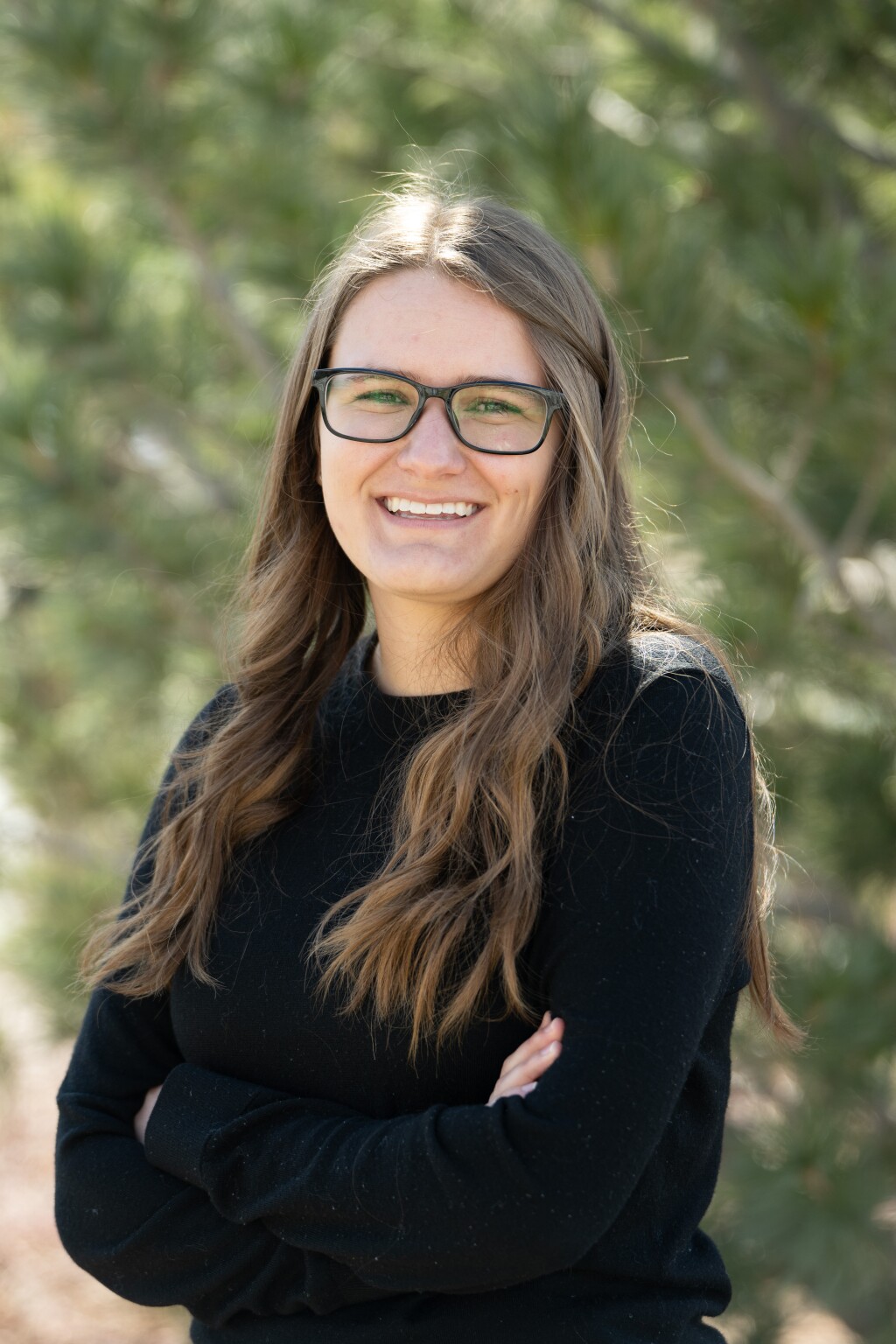
Sarah King
Accounting
As you reflect on your experience, what stands out the most from your education?
The teachers stand out. All of my professors, especially in the Accounting Department, knew my name, even when I saw them later. Once, I had a question about an internship, and I was able to knock on a past professor’s door. She remembered me and was able to help me with my questions.
Looking to the future, what are you the most excited about?
I love accounting. It makes me so happy. So, I'm excited to work in accounting, learn more things, and get better at accounting.
What is the most significant skill you’ve learned through your education?
The biggest skill I’ve learned is learning how to learn—seeing a problem, or being in a class where you're unsure or uncomfortable with exactly what to do, and figuring out how to learn best and figure out how to get help when you need it and learn and grow.
What tips do you have for current students on how to get a great internship?
I got my internship through the Student Accounting Society, so I recommend joining societies.
The school also links you to Handshake, and I know people who found their internships by applying to those and going to networking events with the Career Center.
You can also reach out and do informational interviews.
College of Education and Human Development
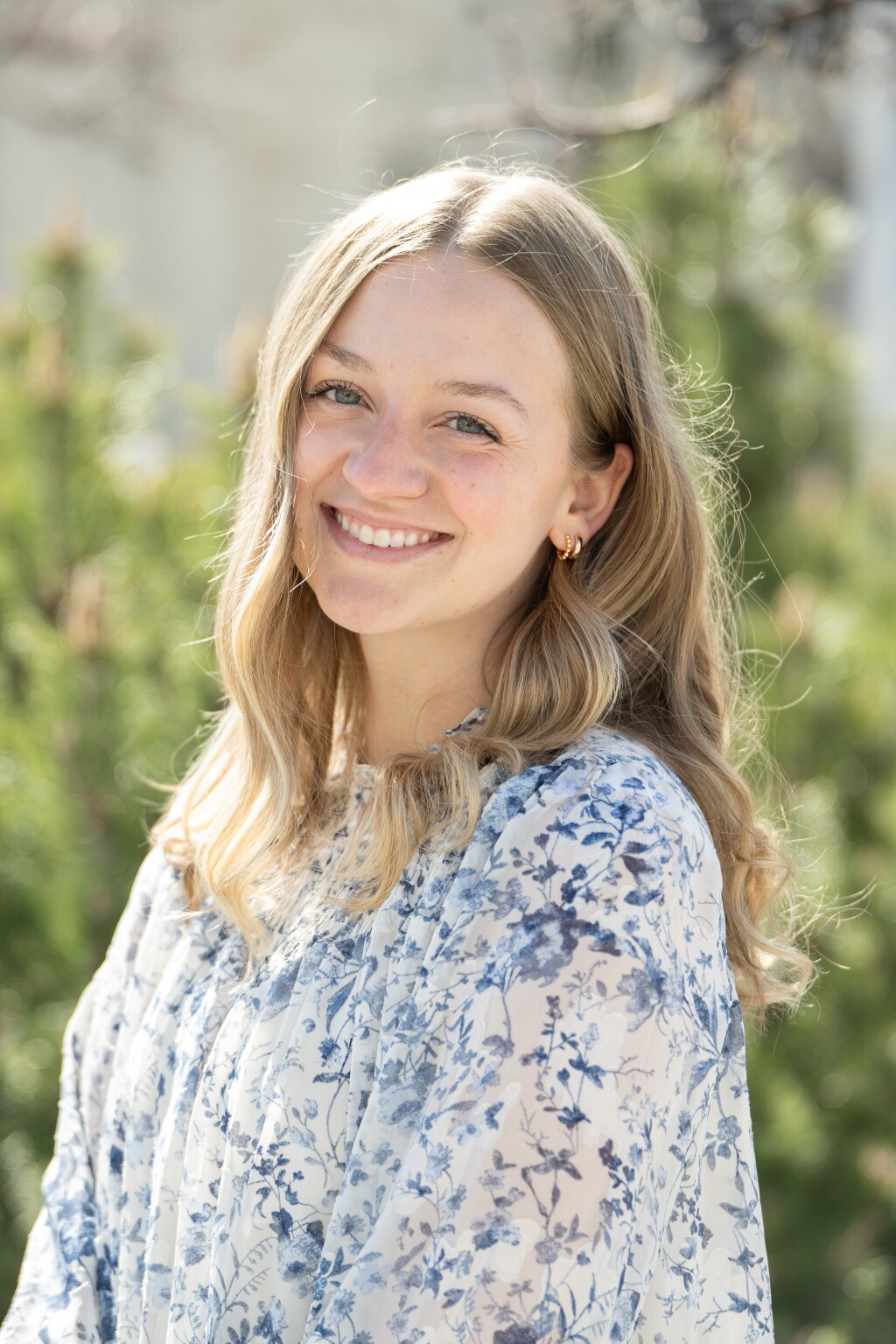
Tori Steanson
Psychology
As you reflect on your experience, what stands out the most from your education?
My relationships with my professors stand out. Yesterday, I said goodbye to my professor who I've been a TA for for the last two years; I probably won't see her again, and I cried so much.
She, as well as a few other professors of mine, have become really close to me in a lot of really important ways. They've become my mentors and guided my education in meaningful directions.
Looking to the future, what are you the most excited about?
I'm excited to go to grad school and continue my education in a more narrow and specified direction. I’m looking for a PhD program in psychology, which would allow me to explore my curiosities about psychology.
I can dive deeper into the curiosities I've curated here on campus in grad school, so I'm pretty excited about that and having a family.
What tips do you have for current students for applying to grad school?
It sounds really hard and scary, but networking. I used to despise the word networking, it felt very fake to me, but I've grown to enjoy it.
Being myself and participating in my classes; having real, genuine, curious questions; and having genuine curiosity have helped me create relationships with professors that are the foundation of my future success.
I truly think that what my professors have offered me in terms of TA positions and research positions has all been because I created a relationship with them that was organic, real, and born out of genuine curiosity.
Networking is being yourself, having genuine curiosity, being overly interested in the other person, and showing real interest. That's the key to networking, and networking is the key to success.
What advice do you have for current students?
Everybody has imposter syndrome, and everybody feels like their comments aren't that helpful, but time and time again, I've felt that and been wrong about it.
I've felt imposter syndrome but discovered later that I deserve to be where I am because of my hard work, and the comments I make and my questions are helpful.
Being yourself and putting yourself out there is scary, but it's essential, and you deserve to be here. If you're here, then you deserve to be here.
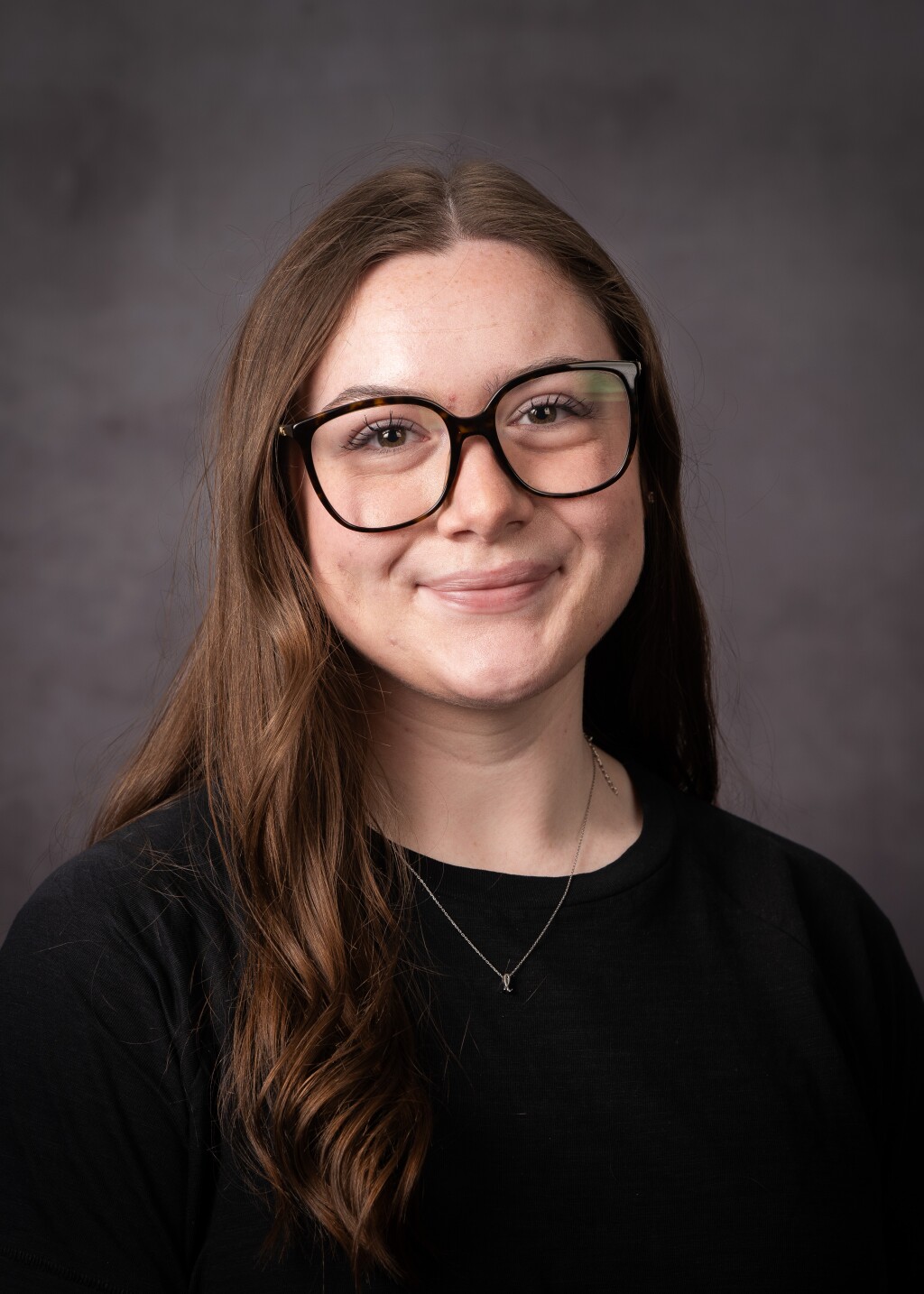
Emily Aldridge
Special Education K-12
As you reflect on your student experience, what stands out the most?
As I look back on my experience as a student, what stands out the most are the connections I’ve made. I’ve gained countless friends, met incredible mentors, and built a supportive network that has blessed my life. My professors have been encouraging and kind, and many of my classmates, peers, and coworkers have become lifelong friends. I’m beyond grateful for the influence they’ve had on me.
But the connection I’ve strengthened most is my relationship with my Savior. Throughout the special education program, I’ve seen the most powerful teaching example in the Master Teacher, Jesus Christ. As I’ve looked to Him and tried to model His example in my own life, I’ve deepened my devotion to Him.
I’m so thankful for BYU-Idaho—a place where I’ve learned academically while growing spiritually. How cool is that?! The connections I’ve made here will stay in my heart forever.
Looking to the future, how has your education here prepared you for life after graduation?
My education has prepared me for life by teaching me how to work with and care for others the way Jesus Christ would. As a Special Education K–12 major, I’ve learned not only the legal side of teaching—like IEPs and paperwork—but also the importance of working closely with parents and IEP teams. My Christ-centered education has taught me how to listen, understand, and collaborate with these families in a compassionate and meaningful way.
What are you excited about for your future?
I’m thrilled to begin working as a Special Education Resource Teacher at Madison High School this fall! I can’t wait to have my own classroom and get to know my students. I’m excited to be a part of their lives, and I hope to be a positive force for good in their journeys.
What advice do you have for someone who is considering going to BYU-Idaho?
My advice? DO IT! No ifs, ands, or buts. BYU-Idaho has been such a wonderful place to learn and grow. I’ve felt the Spirit while studying, which has made all the difference. It’s where I’ve made lifelong friendships, deepened my testimony, and gained a solid foundation in my profession and faith. I highly recommend BYU-Idaho to anyone looking for a fantastic education in a spiritually uplifting environment. I’m sad to leave, but I’ll always be grateful for my time here.
College of Language and Letters
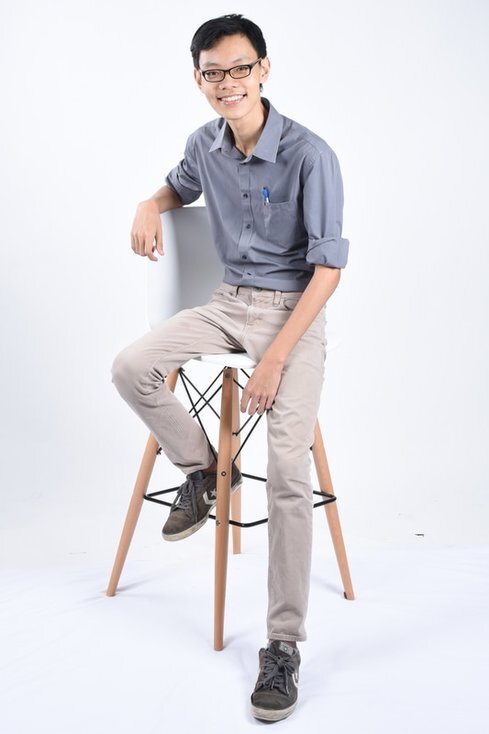
Chong Woon Ray (Ray Chong)
English
As you reflect on your experience, what stands out the most from your education?
For me, what stands out is the amount of faculty support that I got. In the English Department, the faculty are extremely willing to be involved—to the degree that I would drop into the office of one of the professors, who I've never taken a class from, and we would talk about theory, English studies, and things like that.
Learning opportunities in the classroom are all well and good, but the ability to engage faculty in their areas of interest outside class time was amazing.
I don't think there's any other university out there where you will get this much intimate experience with your professor. My advice is to find out who they are and what they're interested in, because that will help them find out who you are and what you're interested in.
Looking to the future, what are you the most excited about?
I've matriculated into a PhD program at Pennsylvania State University, and I'm excited to learn and specialize even more.
One of the skills I've taken away from being at BYU-Idaho is feeling confident about what I'm learning. I have niche interests, but those interests that the faculty helped me develop allowed me to get into the PhD program.
I'm also really excited to give back. BYU-Idaho's English Department turned my life around, and I want to do for others what was done for me.
What advice do you have for students looking to jump from undergraduate to PhD?
Don't be afraid to make mistakes. Don't be afraid to be wrong. Ask questions.
I went about halfway through my career as a college student before I realized I didn't know anything. Which is a weird time to realize it, right?
I was walking between the I-Center and the McKay Library and thought, “Oh, in this life, at least, you will never learn everything there is to learn.” It scared me at first, but it also made me realize, “So you have this amount of time to go do X amount of things. Go do it. Don't be afraid of failure.”
Don't be afraid of saying something dumb because every single moment that happens, you will gain something. You will learn something new. And as long as you're pursuing that higher knowledge, you will go places. Always.
When did you know that your major was for you?
I came in thinking I would be a secondary school teacher. In my mind, professors were these other people that did other things. But once I got into a class, a professor said, “OK, here is a theory, and this is how we're using the theory to analyze literary texts.” I thought, “Oh, that sounds interesting.”
At the end of every class, I started writing at least two questions in red pen at the top right of the corner of my notes, asking questions like, “OK, what is the history behind this theory?” Having these questions coming up constantly drew me in. I thought, “Oh, there's more to learn,” “Oh, my professor can answer this question.”
I don’t think I'm smarter than everyone. I was gifted with something I loved doing.
This curiosity and willingness to be in error can only be backed up by a passion for something so great that you will sustain any damage to pursue it.
If you work extremely hard at something you love, it will produce results—maybe not the results you expect, but it will produce results.
In English studies, I'm what people call a “theory head,” meaning that I read a lot of English literary theory; I know more about the construction of texts and the politics behind the construction of a text. That stuff is what I would refer to as super esoteric, but I loved it, and I kept reading more and more, and I pursued it more and more. I became a better student because what I did was what I loved.
College of Performing and Visual Arts
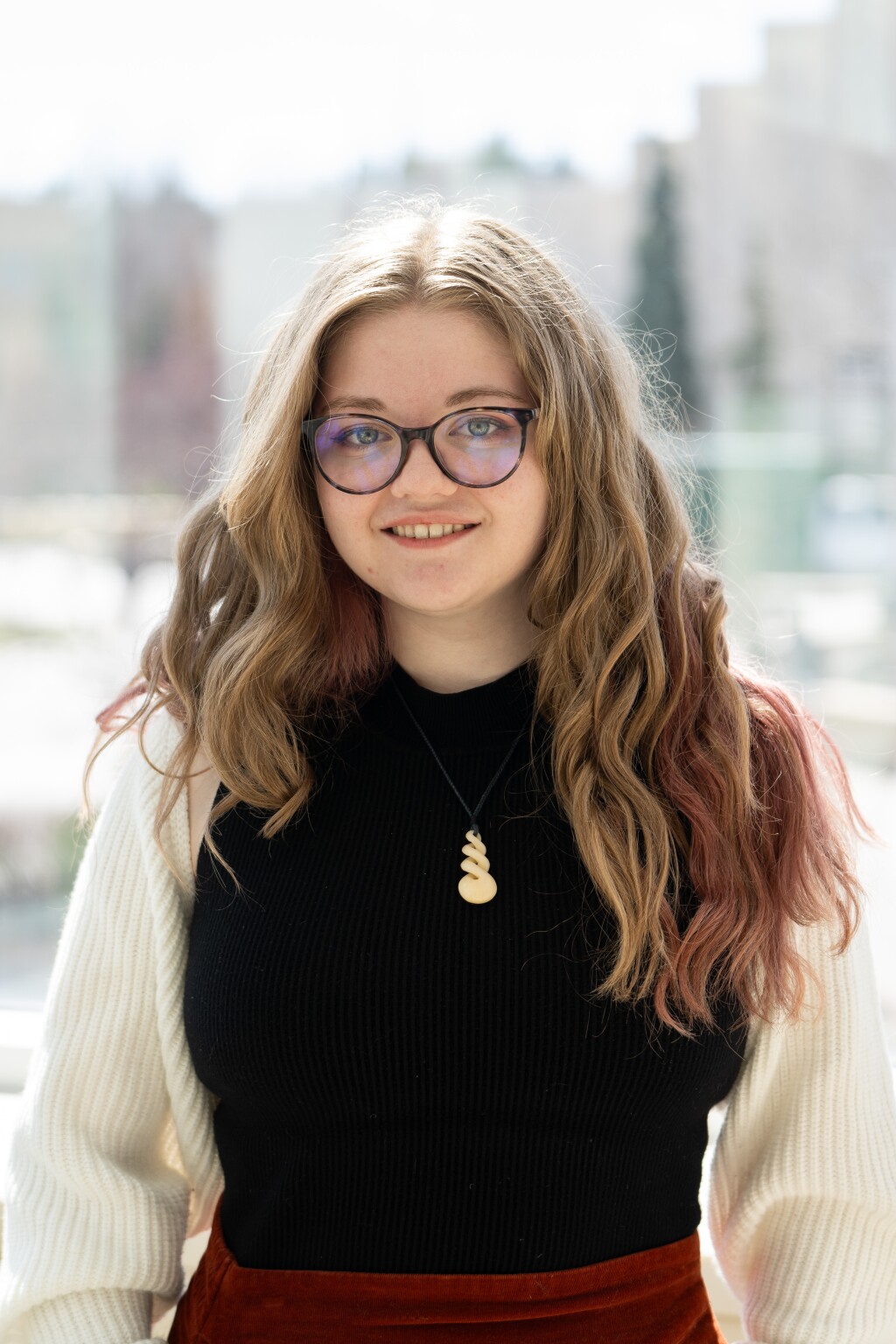
Cora Edwards
Theatre Studies, Technical/Design Emphasis
As you reflect on your experience, what stands out the most from your education?
The level of involvement of faculty and students stands out. It's amazing to see how well you can get to know the people you're working with daily, and how much you can learn to love and care for these people as you collaborate. Over time, you build these relationships, and BYU-Idaho is a great place to do that.
Looking to the future, what are you the most excited about?
I'm the most excited to explore creatively and to use my degree to help make things beautiful. Theater is all about outreach and building connections, and I want to do that.
When did you know that your major was for you?
I think it was coming to see the shows and then getting hired in the department. When you go and see shows, you get to see how theatre impacts people; it really can touch people's hearts.
What advice do you have for students?
My advice is to show up to stuff. If you feel like you're not involved, it's because you're not trying to be.
There's so much going on all the time. Learn to like your professors, and learn to talk to people.
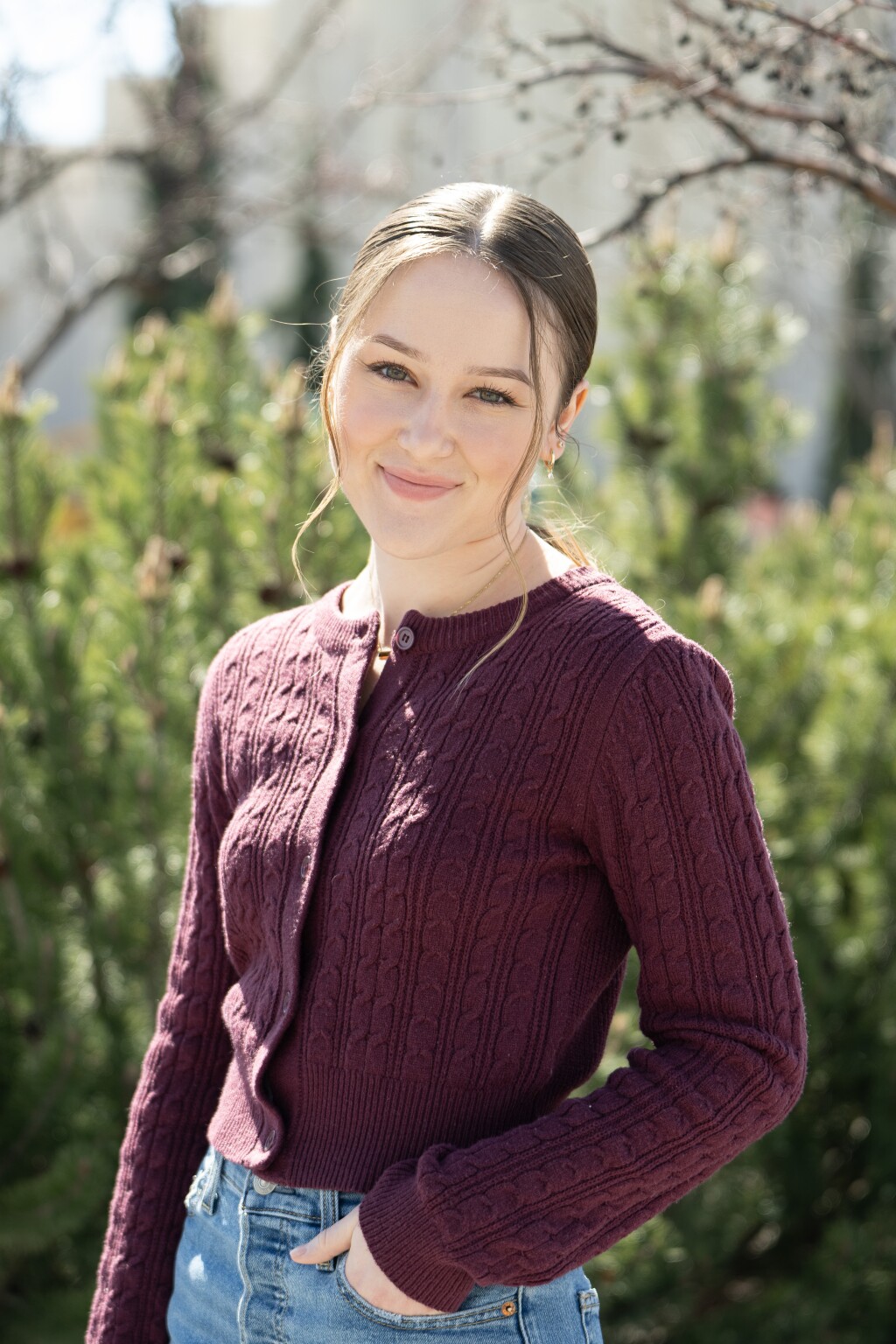
Audrey King
Dance
As you reflect on your experience, what stands out the most from your education?
What stands out the most to me is how this university incorporates the spiritual aspects of movement into its dance program.
Dance isn’t just about the tricks, technique, or everything you can do, but it's the disciple of Jesus Christ that you become and how you can strengthen and share your testimony through movement as a form of worship.
Looking to the future, what are you the most excited about?
I'm the most excited about taking the skills I learned and bringing them into different dance settings.
A lot of performance opportunities in different studios don't always have that same light and caliber of choreography and creation that I think BYU-Idaho alumni have, so it'll be special to bring appropriate choreography that invites the spirit of fun to younger ages who might not get that from other studios.
What opportunities helped you prepare your professional skills?
My choreography classes and collegiate opportunities helped me practice getting into the professional worldview.
It was an amazing opportunity to work with my friends and practice teaching choreography, putting it on a stage, and getting access to things like lights, costumes, and staging.
When did you know that your major was for you?
It was in my first or second semester when I was in a collegiate performance. I wasn't doing choreography, but I was in someone else's, and I remember feeling so welcome and involved with everyone.
Other people had been there for lots of semesters, but I felt like I was a part of the group and that I was wanted. I felt seen for the first time really in my whole life in the dance world.
It was amazing to feel that spirit that was present with all those dancers and to feel like I had something to contribute.
What advice do you have for students?
Use all of your resources.
Your professors are huge resources. Even though it might seem intimidating to form a close relationship with them, email them, and ask them for help, they really are there to help you succeed. Don't be afraid to reach out to them.
You can also reach out to your peers, start study groups, and get together outside of class time.
Balance is also so important. Grades are important, but having fun and making time to rest does help you succeed in your academic work as well.
College of Physical Sciences and Engineering
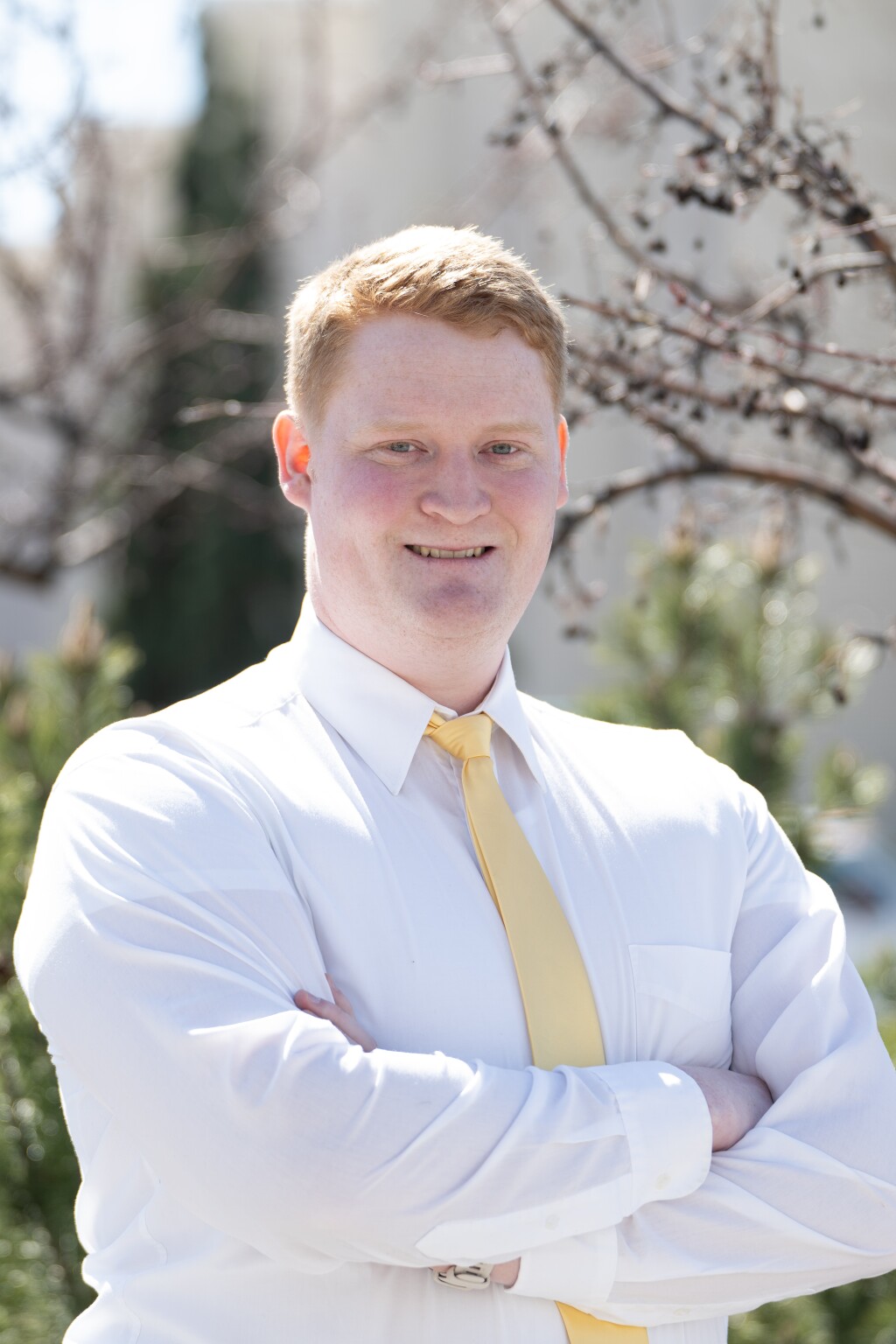
Kevin Eveleth
Mechanical Engineering
As you reflect on your experience, what do you think stands out the most?
What stands out the most is my camaraderie with my fellow engineering students. I have dear friends from coming to BYU-Idaho, and I know I wouldn't have met them if I had gone to any other university.
One of our professors taught at a previous university, and he pointed out that here at BYU-Idaho, we function differently as a group of engineers and students: We help each other. We make sure that everyone is on the same page. We take the time to make sure that everyone understands. No one is going to get left behind when they come here.
That was very dear to me because I relied on my friends, my fellow engineers, and anyone else around me. We all helped each other to lift.
Looking to the future, what are you the most excited about?
I'll be moving to California to work as a facilities engineer for Chevron, and I'm looking forward to enjoying the nice Bay Area weather.
I was able to leverage and compete for that position based on the education I got here, as well as the internships that I got.
When I went on my internship, I realized this wasn't where I wanted to be, and I knew if I wanted to get somewhere, I wanted to be, I would have to put forward a ton of effort to get there.
So I committed and said, “Being from BYU-Idaho doesn't mean I can't compete with people from Harvard, Purdue, and these big-name engineering universities.” I decided that I was going to compete with them no matter what it took.
I also talked to a ton of professionals; I would speak to anyone who would give me an ear to listen. I met people, and I built my network to get that opportunity.
What advice do you have for someone getting an awesome internship?
My advice for someone to get an awesome internship is to go the extra mile. You're going to be competing with people from other universities, and you might think they are better, or that they have a higher work ethic or higher quality of education there, but they aren't willing to go above and beyond like we are here at BYU-Idaho.
I can guarantee that if you go above and beyond—you contact them, reach out, and make an effort to make yourself known—then you'll have a much greater chance of getting an internship and, honestly, future employment.
What advice do you have for students who are considering attending BYU-Idaho?
I think that this place gives you the best value education that you can get.
If you’re considering coming to BYU-Idaho, I highly recommend you at least come up for a tour or come for one semester. It's going to be cheap enough that you can come and give it a try.
